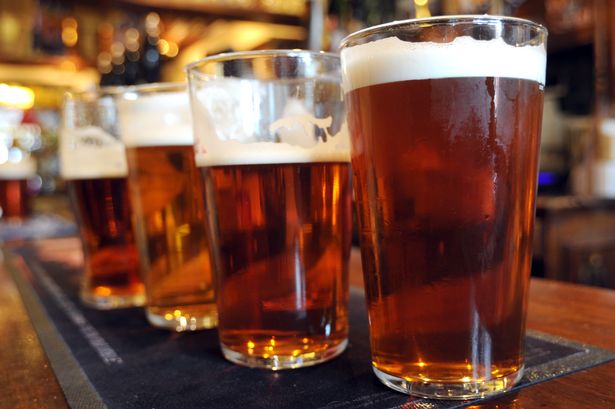Running a business in Liverpool city centre can be a lucrative opportunity. The area has a booming night-time economy which is best encapsulated by the number of successful bars, clubs and restaurants stretching from Water Street to Concert Square and beyond.
The possibilities don’t stop there, of course, with areas like Lark Lane and Smithdown Road boasting venues to eat and drink. Alongside the opportunities however, come costs, particularly for those who want to open late into the night.
Since April 2017, venues opening past midnight across Liverpool that serve alcohol have been subject to the city’s late night levy. After being endorsed by members of the city council the year previously, bars and clubs authorised to sell alcohol during the late night period from midnight to 6am pay an annual fee based on the premises’ rateable value.
READ MORE: Merseyside street where lives being made a 'misery' by fly-tipping
This ranges from £299 to £4,400 a year. Venues within the city’s Business Improvement District (BID) which pay a separate levy do not contribute to the fees collected by the city council.
Over the last five years, around £1.5m has been collected throughout Liverpool through the late night levy, with 70% going to Merseyside Police and the remaining 30% to the local authority. The fee was the subject of a review by the city’s licensing and gambling committee earlier this week and potentially faced being scrapped as a result.
An independent consultation by industry experts found the majority of respondents felt they were not seeing the objectives of the fee being realised. The cash generated is supposed to contribute towards the reduction or prevention of crime, disorder and public nuisance, promotion of public safety, the cleaning of any highway maintainable at public expense or public land open to the air, in its area.
As a result, Night Time Economy Solutions (NTES) recommended to the council panel that the annual levy should be done away with. Alicia Souter, of NTES, said some respondents consider the levy an “added bill” and “inappropriate” due to the cost of living crisis.
However, financial realities have put a stop to that, with councillors admitting the “cold hard cash” generated by the clubland tax was needed amid the budget squeeze the authority is under. Therefore, businesses will continue to contribute despite their misgivings.
Fiona Hornsby runs The Bridewell pub in Campbell Square and contributes annually owing to the venue’s location. She expressed her doubts over the success of the scheme.
She said: “All the police in the city centre tend to be around Mathew Street and Concert Square, we don’t get any by the Bridewell. I get there’s more people around there, but we do our own street cleaning, we keep it tidy, it only gets checked once in a blue moon.
“Nobody wants it because they don’t know what they’re getting out of it. It doesn’t seem to come out to the edges of the city centre. It’s just an additional cost, it’s frustrating because it feels like they’ve taken no notice of us.”
One of Liverpool’s most popular areas outside the city centre is Lark Lane. Nesting between Sefton Park and Aigburth Road in the south of the city, it has become a thriving hub of activity, with bars and restaurants offering an eclectic mix of offers to visitors.
Robert Gutmann has a portfolio of businesses operating on Lark Lane and beyond that pay into the levy and said he felt the late night economy was being punished for the nature of its trade. He said: “They’ve decided they don’t want to take the advice.
“As a hospitality operator, I’d like to know why the burden is being heaped upon us. The late night economy is a large part of the offer of the city, this feels like a fixed penalty for trading.”
Mr Gutmann also questioned the direction Liverpool Council wants the city’s night time economy to take in the middle of economic difficulties being felt across all industries. He said: “It’s a disincentive, would they rather us shut down at 11.30pm?
“It’s an attritional taxation on us, and it feels particularly harsh on the venues that open later like nightclubs. Are we a city that encourages a late night economy or are we disincentivising it?
“It feels like the dice is loaded against the late night hospitality industry, why should we be the pariahs?” Earlier this month, it was confirmed with a £3.5m revamp, a BOXPARK venue was to become the first of its kind in the booming Baltic Market district to be set up outside London.
The area has become a hot spot for a variety of late night establishments and one business owner who is opening their new venture, and asked not to be identified, said a feeling of scepticism was rife around the benefits of the levy. They said: “We were under the impression it was going.
“Through community meetings, the general feeling is that it wasn’t going into what it said. A lot of people seemed perturbed by it and don’t want to pay it.
I understand the need for it and if it is doing what it is actually for, then fine. We’ve never been told what it’s actually going towards, I understand what it should be for but if it’s not doing that, I think it may need a rethink.”
Receive newsletters with the latest news, sport and what's on updates from the Liverpool ECHO by signing up here
READ NEXT
Baby found dead in bed next to mum after she drank beer and took cocaine
Dog expert's theory as Nicola Bulley's dog found running around
Two people arrested after £15k found stuffed between pair of 110s
Pupils stage protest as 'strictest headteacher in Britain' brought in to Liverpool school
Primark trainers almost identical to New Balance 725’s

